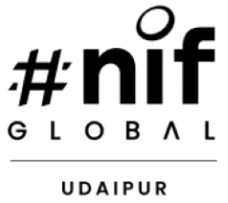Overview & Learning Outcomes of b.des

About b.des
A Bachelor of Design (B.Des) is an undergraduate degree that equips students with a robust foundation in various design disciplines such as graphic design, industrial design, fashion design, interior design, and more. This program combines theoretical knowledge with practical skills, encouraging creativity, innovation, and problem-solving abilities. Students engage in hands-on projects, learn about design principles, tools, and technologies, and often collaborate on interdisciplinary teams. The benefits of a B.Des degree are manifold. Graduates emerge with a strong portfolio, ready for diverse career opportunities in the design industry. They are equipped to tackle real-world challenges, contribute to aesthetically pleasing and functional design solutions, and drive innovation.
Semester 1
- Basics Of Fashion
- Basics Of Fashion
- Textile Embroidery and Printing
- Introduction To Pattern Making and Construction
Semester 2
- Advance Fashion Rendering
- Fabric Construction and Ornamentation
- Mid Segment Fashion Model
- Basics Of Business of Fashion
- Sewing And Pattern Making for Women
Semester 3
- Clothing Industry Overview
- Pattern Grading and Garment Construction for Men
- Advance Textile Study
- Principles Of Retailing
- World Fashion History
Semester 4
- Fashion design and industry overview
- Pattern Grading & Garment Construction: Unisex
- Textile science
- Apparel marketing management
- History of Indian fashion
Semester 5
- Design Studio: Haute Couture
- Quality Control for Fabrics
- Care And Renovation Of Textiles
- Garment Up Cycling
Semester 6
- Design Studio: Avant Garde
- Quality Control: AQL
- Textile Finishes
- Apparel Reconstruction and Deconstruction
- Dissertation
Learning Outcomes
- Gain comprehensive knowledge and skills: Know your chosen field
- In-Depth understanding of industry: Know the market demands & consumer
- Knowledge of design software and techniques: Field essential
- Cultivate creativity, innovation, and problem-solving abilities
- Effective communication and presentation skills: Articulate Design Concepts
- Technical Skills: Create & Design
- Acquire hands-on experience through internships, industry projects, and practical workshops.
- Develop a professional portfolio showcasing design projects, techniques and achievements.
- Build a strong network of industry contacts through mentorship
- Programs and industry collaborations.
- Creative Development: Understanding of color theory & trends
- Business Acumen: Market knowledge & business management




